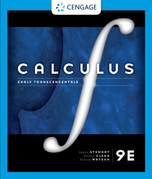Solution Found!
Solved: ?Find the limit or show that it does not exist.\(\lim \limits_{x \rightarrow
Chapter 2, Problem 41(choose chapter or problem)
Find the limit or show that it does not exist.
\(\lim \limits_{x \rightarrow \infty}\left[\ln \left(1+x^{2}\right)-\ln (1+x)\right]\)
Questions & Answers
QUESTION:
Find the limit or show that it does not exist.
\(\lim \limits_{x \rightarrow \infty}\left[\ln \left(1+x^{2}\right)-\ln (1+x)\right]\)
ANSWER:Step 1 of 2
Consider the given function is,
\(\lim _{x \rightarrow \infty}\left[\ln \left(1+x^{2}\right)-\ln (1+x)\right]\)
Simplify the function as,
\(\begin{aligned}
\lim _{x \rightarrow \infty}\left[\ln \left(1+x^{2}\right)-\ln (1+x)\right] & =\lim _{x \rightarrow \infty}\left[\ln \left(\frac{1+x^{2}}{1+x}\right)\right] \\
& =\lim _{x \rightarrow \infty}\left[\ln \left(\frac{\frac{1}{x^{2}}+\frac{x^{2}}{x^{2}}}{\frac{1}{x^{2}}+\frac{x}{x^{2}}}\right)\right] \\
& =\lim _{x \rightarrow \infty}\left[\ln \left(\frac{\frac{1}{x^{2}}+1}{\frac{1}{x^{2}}+\frac{1}{x}}\right)\right]
\end{aligned}\)
